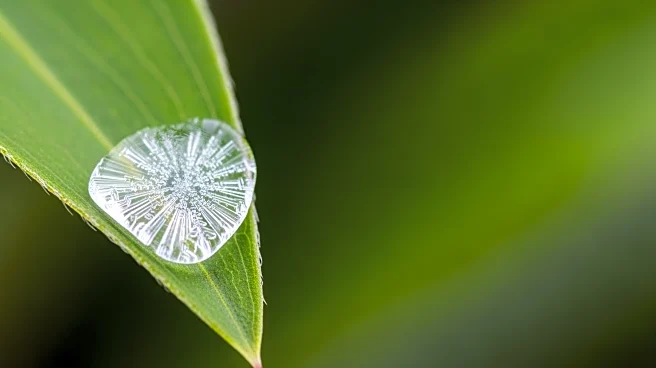What's Happening?
Iceland, previously known as one of the last mosquito-free regions on Earth, has reported sightings of mosquitoes for the first time. The Natural Science Institute of Iceland confirmed the presence of three
mosquitoes, identified as Culiseta annulata, near a garden in Kjós municipality. This development is potentially linked to climate change, as rising global temperatures and milder winters create favorable conditions for mosquitoes to survive in areas that were once too cold. Iceland experienced record-high temperatures earlier this year, contributing to the conditions that may have allowed these insects to appear.
Why It's Important?
The appearance of mosquitoes in Iceland is significant as it highlights the broader impacts of climate change on ecosystems and biodiversity. Mosquitoes are known carriers of various diseases, and their presence in new regions could pose public health challenges. Although the current species found in Iceland is unlikely to transmit diseases, the situation underscores the need for monitoring and preparedness as climate change continues to alter habitats. This event serves as a reminder of the interconnectedness of global ecosystems and the potential for climate change to disrupt established environmental balances.
What's Next?
Scientists and public health officials in Iceland may need to monitor the mosquito population closely to assess whether they can establish a permanent presence. Further research could be conducted to understand the potential for disease transmission and the ecological impact of mosquitoes in the region. Additionally, this development may prompt discussions on climate change mitigation strategies to prevent similar occurrences in other regions.
Beyond the Headlines
The introduction of mosquitoes to Iceland could have cultural implications, as the country has long been known for its mosquito-free environment. This change may affect tourism and the perception of Iceland as a pristine natural destination. Furthermore, it raises ethical questions about human responsibility in addressing climate change and its effects on global biodiversity.









